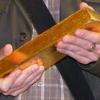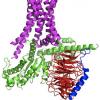I think there is more to consider. I just saw a pot article suggesting to me that the growth of neurons induced by marijuana caused a diffusion of the connectome at the nerve endings? How are we to know if IGF1 was going to do the same? Will it cause random growth?
Perhaps you are implying that marijuana causes random (CNS) growth.
(I haven't seen the paper you're referring too, and you haven't cited it.....
I am aware of the evidence that cannabis slows down the rate at which dementias progress
and that in various parts of Europe and Israel (and perhaps America too), cannabis is on the
menu in some old people's homes where dementia is diagnosed and the patient requests cannabis therapy)
But "Random Growth" ? How about "Generic Growth" ? Or better, "A Growth Facilitator" ?
What marijuana does or doesn't do is a separate issue, deserving it's own thread.
Perhaps It's just polluting the current issue to bring in marijuana.
Wouldn't we need something that would somehow target just those connections that would be productive?
The rationale for nasal delivery.. is to *try to* target the IGF-1 on nasal nerves in the *hope* they deliver
the IGF-1 signal to deeper CNS regions.... just as happens with NGF. The alternative might be occular
delivery (as practiced by Rita Levi-Montalchini) .. but more recent research suggests that delivery is more
efficiently achieved via a nasal route. I'm afraid i don't have the links to hand. If you're interested, however,
go through the NGF Spray thread... and look for the articles cited by Resveratrol-guy in the last 5 or 6 pages.
It wouldn't surprise me to discover that neurogenesis works in a similar fashion to muscle fiber creation.
Body builders take testosterone (and testosterone analogues) to potentiate rapid growth, and then they
go into the gym and exercise to initiate and stimulate the growth process.
So, in summary, the formula is: steroids + exercise.
I suspect neurogenesis is promoted with a similar formula of:
(IGF-1 or NGF) + mental exercise (brain trainers, reading, learning, etc)
I don't think exogenous application of hormones or any substance for the purpose of growth will result in exactly the rejuvenation that we're looking for.
Define what you mean by "exogenous application".
Any chemical injected, drunken or eaten ?
Define what you mean by "exactly the rejuvenation that we're looking for"
The effect i'm looking for is neurogenesis.
Is that what *you* mean ?
But... if you don't believe that any hormone or other drug (for the purpose of growth) will result in rejuvenation...
...then... i'm surprised you are moderator on longecity.org.
It might beneficially support some systems with little in the way of immediately noticeable side effects, but the more distant results may become increasingly difficult to correct as technology advances. Think of Krokodil, the Russian drug that makes you rot like a zombie... the zombie rot isn't noticeable at first and it feels good... people don't recognize what it's doing to them until it's done so much damage it isn't worth caring about anymore. The same can probably be said of pot, and what's to say that using IGF1 in this fashion won't lead to the same phenomena, even if it's different than your arms and legs rotting off until you die. Maybe you're brain and identity start to diffuse terminally until your brain just rots...
I think a comparison between a notorious recreational drug which causes catastrophic immune system problems,
and a bio-identical hormone, IGF-1, which has been used, and abused, for decades *safely*.... is ... unreasonable.
Even the most ferocious consumers of HGH... never exhibited 'brain rot' or any other kind of rot...
they grew and grew and grew... with unsightly distended bellies... but that's as bad as it got.
Even deaths amongst body builders are normally attributed to biologically non-identical anabolic steroid abuse
(rather than HGH or IGF-1)
I think we need to focus on restoring the function of the body and it's various systems and that doing so will result in the brain and other systems returning to youthful functioning. I'm starting to regard this kind of strategy as potentially dangerous.
I suspect you're right that.. a healthy body (in terms of plenty of exercise, good nutrition, freedom from toxins & pathogens)
will support brain health. That's almost certainly true... but alas... not in all cases.
We have members on this website with
(a) brain injury due to stroke
(b) brain injury due to one or other form of dementia
© brain injury due to trauma.
These people need a little help with their neurogenesis... a popularly considered route to this assistance has been via NGF
and various supplements that promote NGF secretion.
The starting point of the current thread is noticing the correspondence between the burgeoning mass creation of neurons
during the last few months before birth and the first few years after birth... and the massive output of HGH at those times.
We also have academic papers testifying to the association of HGH and neurogenesis (cited above, see earlier in this thread)
Then again, in this case, if the IGF1 is being released in the liver, the delivery is naturally diffuse... but the cells receiving it may become senescence resistant or not die when they should and cause further proliferation of more aged cells? That would only lead to a terminal scenario... I suppose those effects could be mitigated by cycling the stuff with some kind of hormesis activity...
































































